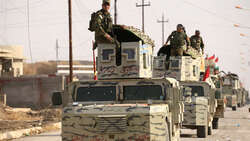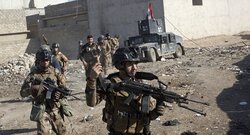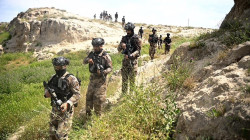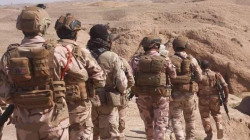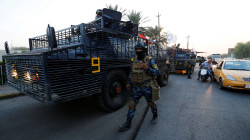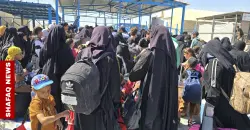Iraqi leaders mark 6th anniversary of ISIS defeat
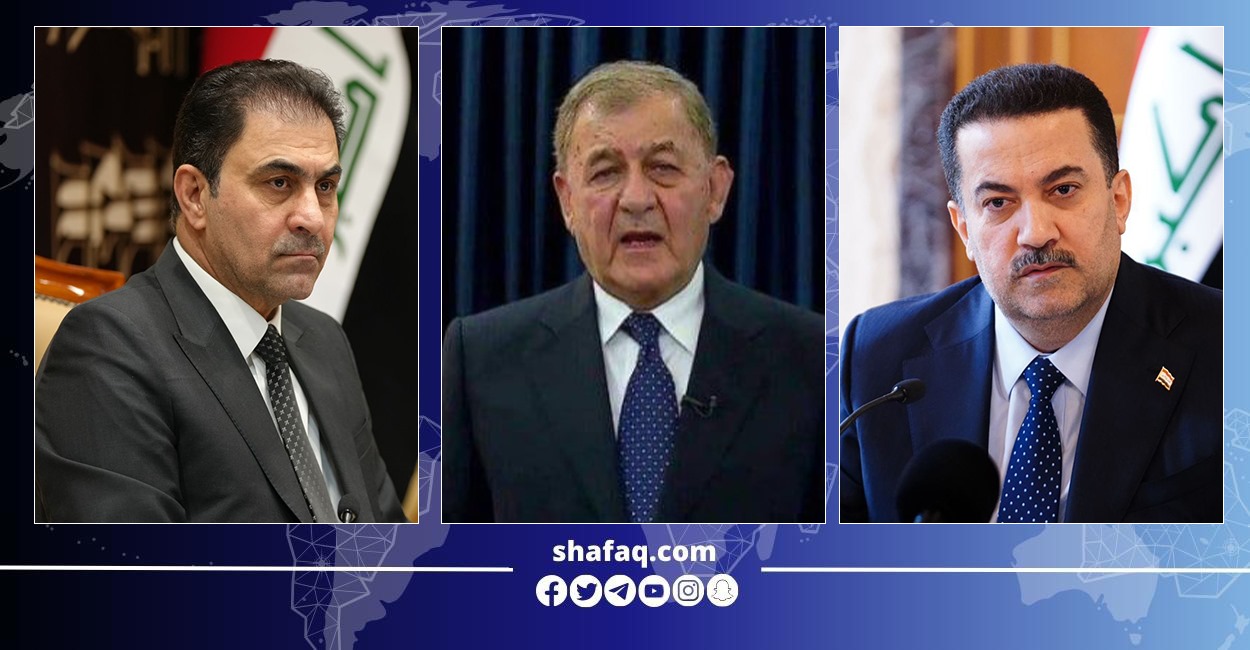
Shafaq News/ Iraq's top leaders marked the sixth anniversary of the defeat of the Islamic State of Iraq and Syria (ISIS) on Sunday, vowing to continue the fight against terrorism and corruption.
President Abdullatif Rashid said that the victory over ISIS was a "historic moment" that came at the cost of "heavy sacrifices" by the Iraqi people and security forces. He called for national unity to "consolidate security and continue the reconstruction process."
Prime Minister Muhammad Shia al-Sudani said that the victory was "a testament to the strength of the Iraqi people and their determination to defeat terrorism." He praised the role of the Iraqi security forces, the Iraqi people, and the international community in the fight against ISIS.
Sudani also stressed the need to address the challenges facing Iraq, including corruption and the deteriorating essential services.
Muhsen al-Mandalawi, actin speaker of the parliament, said that the victory over ISIS was "a turning point in Iraqi history." He called on the Iraqi people to unite and work together to build a better future for the country.
The Islamic State – also known as ISIS, ISIL, or Daesh – emerged from the remnants of al Qaeda in Iraq (AQI), a local offshoot of al Qaeda founded by Abu Musab al Zarqawi in 2004. It faded into obscurity for several years after the surge of U.S. troops to Iraq in 2007. But it began to reemerge in 2011. Over the next few years, it took advantage of growing instability in Iraq and Syria to carry out attacks and bolster its ranks.
The group changed its name to the Islamic State of Iraq and Syria (ISIS) in 2013. ISIS launched an offensive on Mosul and Tikrit in June 2014. On June 29, ISIS leader Abu Bakr al Baghdadi announced the formation of a caliphate stretching from Aleppo in Syria to Diyala in Iraq, and renamed the group the Islamic State.
In 2015, ISIS expanded into a network of affiliates in at least eight other countries. Its branches, supporters, and affiliates increasingly carried out attacks beyond the borders of its so-called caliphate. In October, ISIS’s Egypt affiliate bombed a Russian airplane, killing 224 people. On November 13, 130 people were killed and more than 300 injured in a series of coordinated attacks in Paris. And in June 2016, a gunman who pledged support to ISIS killed at least four dozen people at a nightclub in Orlando, Florida.
By December 2017, the ISIS caliphate had lost 95 percent of its territory, including its two biggest properties, Mosul, Iraq’s second largest city, and the northern Syrian city of Raqqa, its nominal capital. The Iraqi Prime Minister Haider al Abadi declared victory over the Islamic State in Iraq on December 9, 2017. But ISIS was still inspiring and carrying out attacks all over the world, including New York City.
